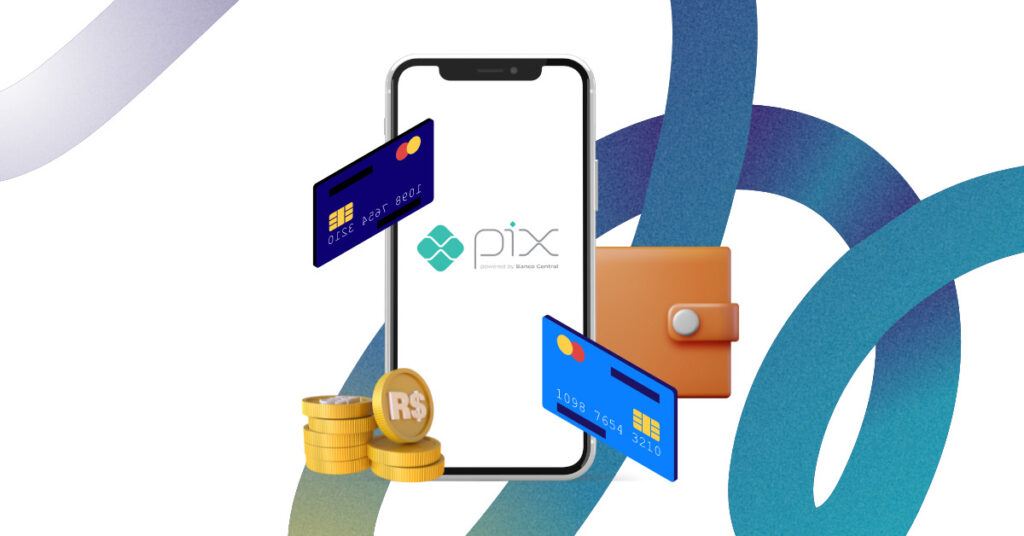Banking on Crypto: Adapting to Rising Market Demand
The outlook for the cryptocurrency market in 2024 is exceptionally promising, with predictions pointing to a capitalization surpassing $5 trillion. The launch of Crypto ETFs has notably boosted the market by driving growth and attracting more investors. By April 2, US Spot Bitcoin ETFs collectively managed over $55.1 billion in assets.
More recent developments include Hong Kong’s conditional approval of its first spot bitcoin and ether ETFs and the planned launches by three offshore Chinese asset managers. These advancements not only open new investment avenues but also signal significant progress in cryptocurrency acceptance.
Despite rising crypto acceptance, the banking sector’s reception has been mixed. While some banks have adapted and offer services to crypto businesses, others still view them as high-risk and shy away. Understanding how to find the best bank for crypto businesses and successfully navigate this complex process is crucial for your crypto company’s operational efficiency and compliance.
This guide will simplify the steps needed to open a bank account for your crypto business, helping you navigate through the complexities with greater ease.
What Is a Crypto Bank Account?
A crypto bank account functions as a multi-currency account, facilitating the management of both fiat currencies and cryptocurrencies under one roof. This capability is crucial for crypto businesses that operate with diverse currency needs, including transactions in multiple traditional and digital currencies, payroll processing, and operational funding. They are particularly valuable for companies that deal extensively with different types of currencies in international markets.
Given the regulatory landscape, crypto bank accounts might face stricter stringent regulations and policies, depending on the jurisdiction. For example, in the United States, banks that handle cryptocurrency are generally insured by the Federal Deposit Insurance Corporation (FDIC), providing an extra layer of security for crypto account holders.
Why Is It Difficult to Open a Bank Account for Cryptocurrencies?
Digital currencies are significantly different than traditional currencies such as the dollar or euro, and fairly new to the financial scene. This novelty means that many traditional banks are still in the process of understanding how to interact with crypto companies, what systems need to be in place to handle such accounts, and the overall risk involved. Consequently, many are cautious and prefer to wait for more definitive regulatory frameworks before fully embracing cryptocurrency transactions.
To fill the gap, several digital banks have emerged, specifically equipped to handle the complexities of cryptocurrency transactions. These crypto-friendly banks are built on sophisticated technological frameworks and staffed by experienced teams in digital currencies. This specialization also ensures that crypto businesses can access secure, efficient, and robust banking services tailored to their needs.
This progressive approach by digital banks is essential for supporting the integration of cryptocurrencies into the broader financial ecosystem, offering a bridge between traditional banking and the demands of the digital economy.
Why Aren’t the Majority of Banks Crypto-Friendly?
Cryptocurrencies are still mostly unregulated, which puts traditional banks in a tough spot. These banks, governed by strict rules from authorities, find it hard to adapt to the lesser-known, somewhat anonymous nature of cryptocurrencies. This mismatch makes it challenging to implement standard regulations like Know-Your-Customer (KYC) policies.
Additionally, the high volatility and risks linked with cryptocurrencies make banks hesitant. They need to perform detailed checks on new crypto clients, which adds complexity and time to the process due to unfamiliar procedures and documents. This often leads banks to steer clear of the crypto market to avoid these hassles.
What Are the Most Frequent Requirements to Open a Crypto Bank Account?
While each financial institution may have its unique set of criteria for opening a crypto bank account, several requirements are commonly expected across most institutions. These are designed to satisfy the banks’ need to manage risks and comply with international regulatory standards, while also ensuring that your business can operate smoothly and efficiently.
Here are the 5 steps that you generally need to prepare for to successfully open a bank account for your crypto company:
Complete a Detailed Application
This initial step involves filling out an application that details your business model and operational practices. This often includes several questionnaires that assess your business’s compliance and risk management strategies.
Submit Extensive Documentation
Although the application form might seem comprehensive, be prepared to support it collect and submit extensive additional documentation. These records show your business is compliant, viable, and operates transparently.
Verify Business Registration and Licensing
You must demonstrate that your business is registered with the appropriate regulatory bodies and that you have obtained any necessary business licenses. This shows the bank that you are a legitimate entity operating within the legal framework. A reputable institution will only proceed with your crypto bank account application once you have secured all necessary business licenses to operate legally in your jurisdiction.
Demonstrate Robust Internal Policies
Beyond registration proof, you’ll need to provide evidence of robust policies implemented to prevent illegal activities and protect your customers’ interests and investments. This includes adhering to anti-money laundering (AML) and know-your-customer (KYC) practices, which are essential for mitigating risks associated with unlawful activities. Banks may also require confirmation that you have appointed a qualified compliance officer to oversee these regulations.
Make an Initial Deposit
Finally, opening your account will typically require an initial deposit. The amount can vary significantly, so it’s important to confirm this requirement early in the application process.
What Documents Do Banks Require to Open an Account?
The documents you submit will help the bank assess the risk profile of your business and determine its eligibility for an account. These are designed to satisfy the banks’ need to manage risks and comply with international regulatory standards, while also ensuring that your business can operate smoothly and efficiently.
Preparing documents beforehand can facilitate a smoother application process. Generally, you will be asked to submit the following:
Proof of Identity and Legal Status
- Personal Identification: Valid photographic IDs for all key stakeholders (e.g., passports, national ID cards).
- Business Licenses: Documents that authorize the operations of your business under local and international laws.
- Articles of Incorporation: Confirm the legal formation and structure of your business.
Operational and Compliance Documents
- AML Policies: Outline your procedures for preventing money laundering.
- KYC Procedures: Detail how you verify the identities of your clients, crucial for compliance.
- Business Plan: Includes detailed descriptions of your business activities, expected transaction types, and financial projections.
Proof of Registration
- Registration Certificates: From relevant financial authorities, showing your business is recognized and regulated.
- Tax Identification Number (TIN): Required for managing your company’s tax obligations.
Additional Supporting Documents
- Professional References: From past banking relationships or auditors to provide credibility.
- UBO Declaration: Documents identifying the ultimate beneficial owners (UBOs), typically those holding at least 25% of the company’s shares. Required under laws like the Anti-Money Laundering Act, these help banks perform due diligence by understanding the sources of the company’s funds and the backgrounds of its key stakeholders.
It’s important to note that banks often have specific requirements for how documents should be presented. Typically, this includes providing notarized documents in English.
Which Countries are Most Receptive to Crypto Companies?
The landscape of cryptocurrency regulation varies significantly across the globe. As these digital currencies gain acceptance, certain countries emerge as particularly crypto-friendly, offering a more stable and supportive environment for crypto businesses. These nations have recognized the potential of cryptocurrencies in modern finance and have adapted their legal frameworks to accommodate this innovation.
Top Crypto-Friendly Countries are:
Switzerland: Known for its progressive financial policies, Switzerland has established a “Crypto Valley” in Zug, a global hub for crypto companies.
Malta: Dubbed “Blockchain Island,” Malta offers a regulatory haven for crypto enterprises with its clear and favorable blockchain laws.
Singapore: This country stands out for its open and well-regulated approach to cryptocurrency, making it a prime location for crypto startups.
Estonia: Having a government that supports blockchain technology with minimal regulations, Estonia is a top destination for companies in the crypto space.
Luxembourg: With a friendly regulatory environment and supportive government policies, Luxembourg is attractive to crypto businesses.
Portugal: Known for its zero tax on cryptocurrency gains, Portugal offers a financially appealing environment for individual investors and crypto companies alike.
Cryptocurrency regulations, rules, and tax laws continue to evolve quickly, creating a dynamic global environment for crypto companies. Staying informed about legislative developments is crucial to avoid surprises and ensure your business can adapt and thrive in these favorable markets.
Who Can Help with Opening a Bank Account for your Crypto Company?
Opening a bank account for your crypto company is crucial for legitimizing your business and ensuring operational success. However, the process, from registration to compiling necessary paperwork, can be complex and time-consuming.
At Capitalixe, we understand the vital importance of strong banking relationships for crypto businesses. The journey through regulatory compliance and achieving operational efficiency is complex and requires more than mere expertise—it demands a dedicated partner who can simplify the process of opening a bank account for your crypto company.
Through our global network of regulated providers, we offer reliable banking solutions for crypto companies like multicurrency IBANs, cross-border and correspondent banking, mass payments and FX services. We can also assist clients with large-value over-the-counter (OTC) crypto trading.
Reach out for a personalized consultation and let us handle the intricacies so you can focus on scaling your crypto business effectively.







